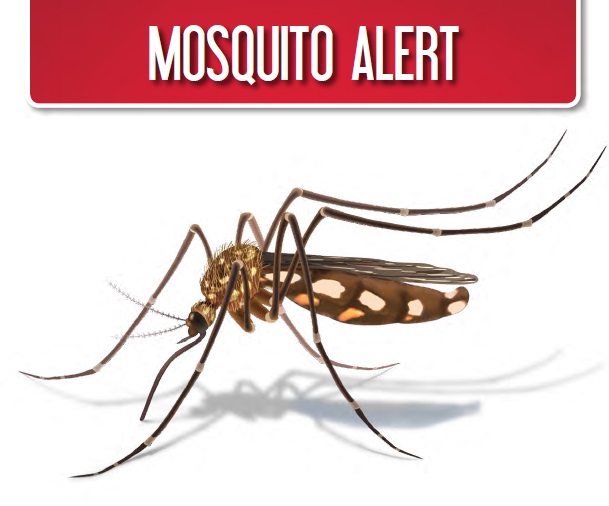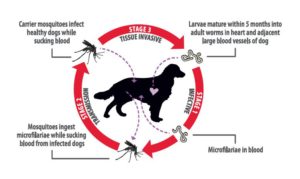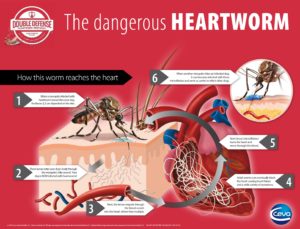
If you own a canine, you have heard us mention “heartworm prevention” before and its importance. But do you know what heartworms are, how they are transmitted, or how they actually affect your dog?
Heartworms are a common parasite that are transmitted through a mosquito bite. The mosquito ingests the microfilariae from an infected dog. From there, the now-infected mosquito carries the microfilariae, giving them time to mature into larvae. When the mosquito bites an uninfected dog, they transmit the larvae into the blood where they travel into the heart. There the larvae take 5 months to mature into adult heartworms. Those heartworms then reside and grow, infecting the dog’s heart and the large vessels nearest.
One of the biggest issues we see is that pet owners think if their dog doesn’t interact with others often, they are not at risk for heartworms. Sadly, that is not true. Since the heartworms are transferred from a mosquito, all it takes is one bite. As long as you are taking your dog outside, whether it be a walk through the neighborhood, the park, or your own back yard, they are at risk. Since mosquitoes travel and do not stay in one area, they may be carrying larvae from miles away.
Now this sounds a little scary, but there is good news! If you keep your pet on a monthly preventative, you help to protect your pet from the risk. Preventives, like Sentinel, help by killing any eggs or larvae that your dog may be infested with. Since it takes 5 months for heartworms to mature into adults, the monthly medication will not allow them to grow into mature parasites. This is why it is important to continue to give heartworm medication throughout the entire year, not just in the warm months.
If you have any concern your pet may have heartworm, please visit us for a heartworm test at the clinic.



